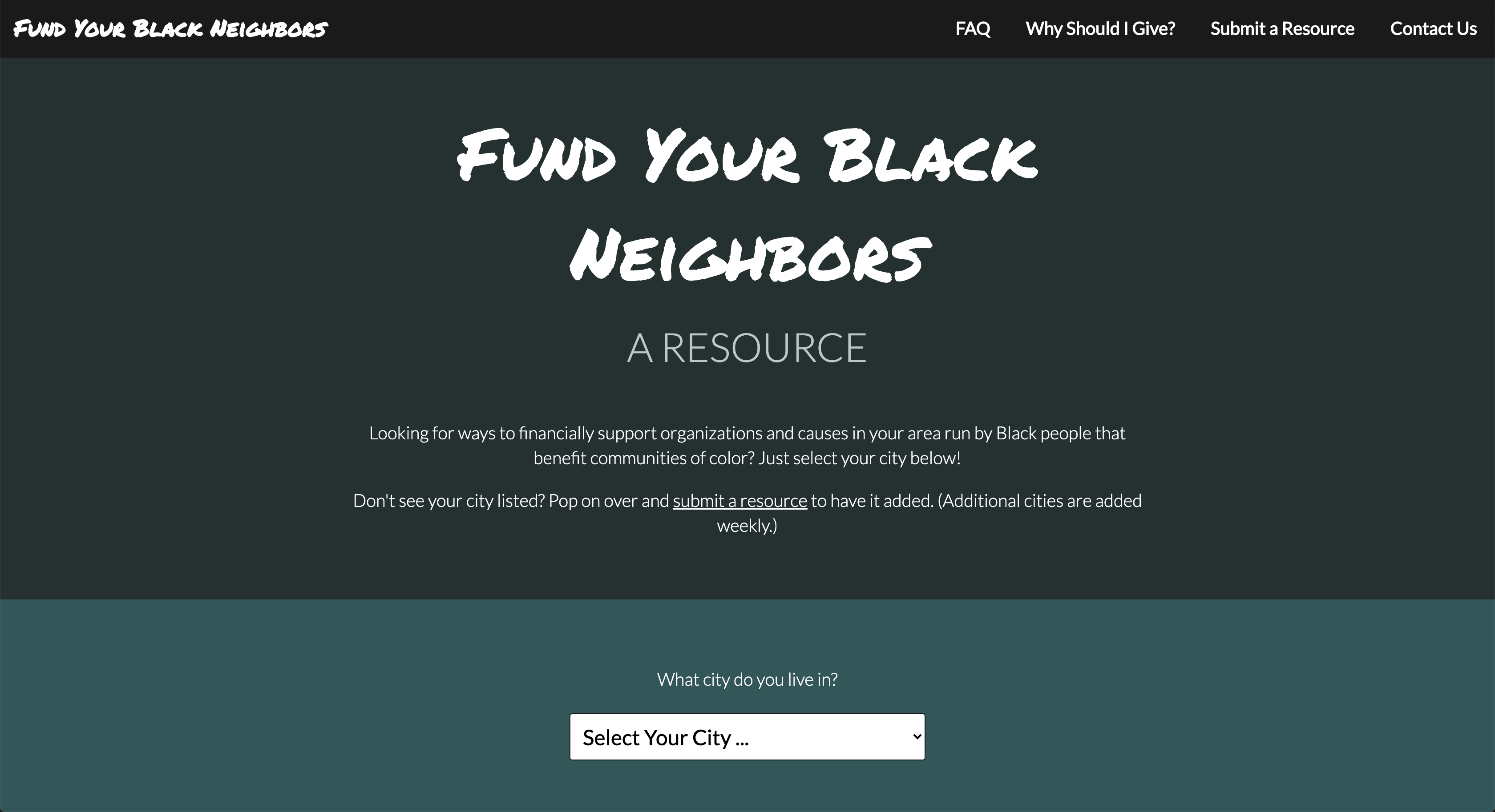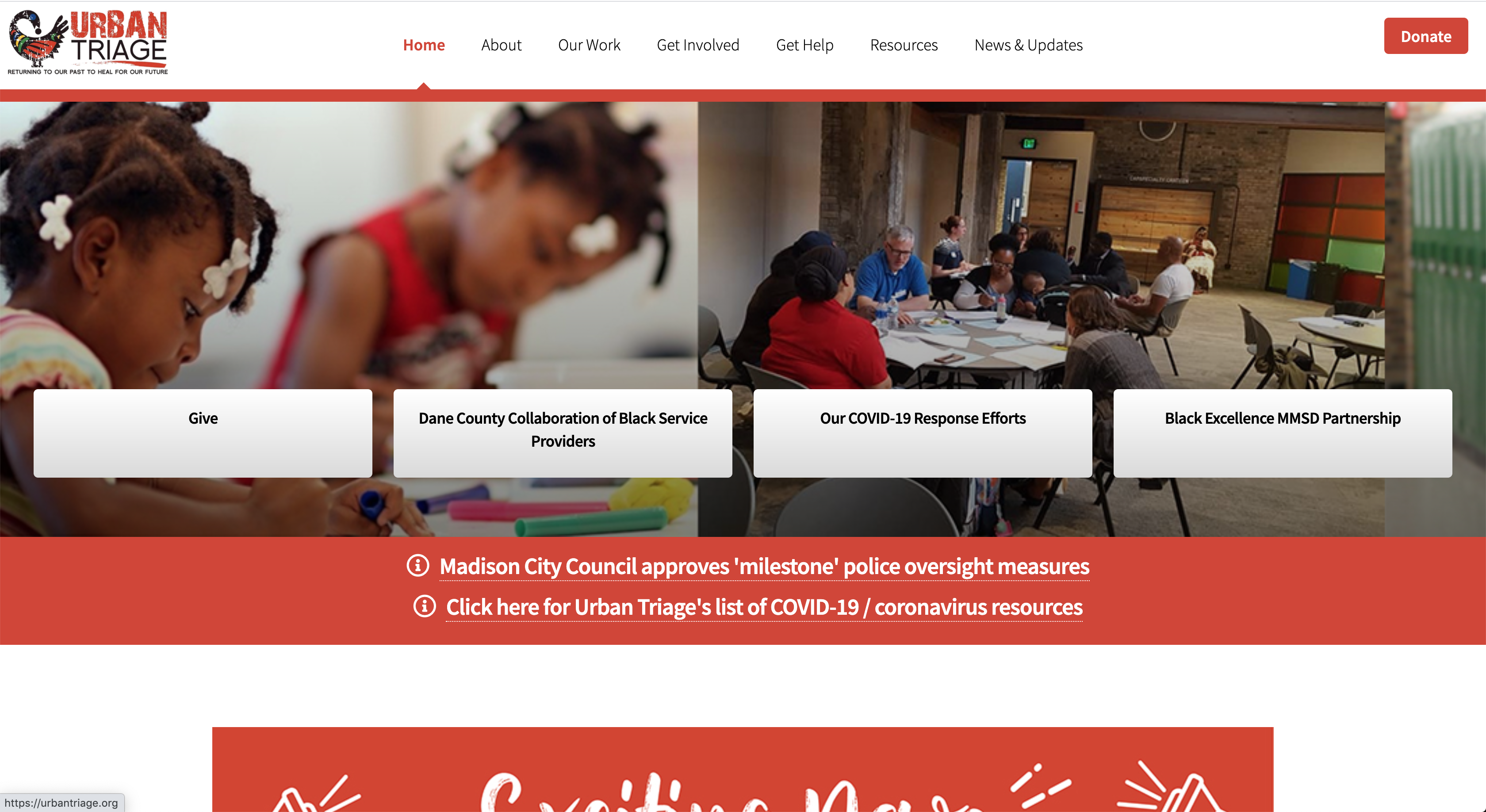3 ways tech companies can support Black Lives Matter in their communities
The United States is experiencing a long overdue reckoning regarding our country's treatment of Black people. The tech industry - which not only has vast resources, but also its own deep history of past and present racial exclusion and oppression - must deliberately transition from being part of the problem to being part of the solution.
As a workplace and business, Ten Forward actively engages with our community to support Black and brown lives. As a white-owned company, we know we have much work yet to do, and we certainly don't have all the answers.
We also know that the time for action is now.
If you work in tech and are looking for ideas for how your company can advance racial equity in your community, this post is for you.
1. Donate
Speaking broadly, if you're in the tech industry, your company has money to spare. Below are several concrete ways to redistribute that profit.
Get your company to start a donation match program
According to Double the Donation, as of 2020, an estimated $2 billion to $3 billion annually is donated via matching gift programs. And it's not just about corporations giving more: matching gift programs actually inspire more employees to donate, and to donate more. 84% of people surveyed by The Big-Give Research Initiative said they’re more likely to donate if a match is offered, and 1/3rd of people said they'd donate a higher amount if they knew it'd be matched.
Tips for getting started: How to Start an Employee Matching Gifts Program in 6 Easy Steps
Establish a budget for donations, and have your team pick recipients
Every quarter, Ten Forward's staff picks a local organization that reflects our values and directly benefits our community, and the company donates $500 to that organization. In the past, we've given to groups such as Planned Parenthood and Maydm, a local nonprofit that engages girls and youth of color with STEM.
This summer, we shifted our focus to local organizations on the frontlines of the Black Lives Matter movement, including our local bail fund and community nonprofit Urban Triage.
In the Madison, WI area, the following organizations directly counter racial inequity in STEM, in particular:
- Madison YWCA's YWeb Career Academy, a front-end coding bootcamp aimed at women and people of color
- Colorcoded, which provides technology access and skill development for girls, minority, and low-income youth
- Maydm, which provides girls and youth of color in grades 6-12 with skill-based training for the technology sector
Note: it's important to donate to organizations run by folks who belong to the communities they purport to benefit (see the concept of the "white savior").
2. Volunteer your skills and resources
In addition to funds, tech companies also have skills and resources to offer groups combating racial injustice. Nonprofits can often use a technology bolster, because as we all know, tech services are expensive.
Below are a few ways to contribute time and skill.
IT support
With many groups moving their organizing online, the need for tech-oriented folks who can provide live support is greater than ever.
Web services
Another idea? Host (or even build!) a website for an area racial justice organization. For example, Ten Forward has a proprietary hosting platform; we offered this platform to build the website for local activist group Urban Triage pro bono, and for the past year, have hosted and maintained said website for free. It's fairly trivial for the average tech company to build a brochure website, but can make a huge difference to an organization.
Tutoring
Is there a bootcamp in your area? They'd almost certainly welcome your colleagues' or employees' expertise. At Ten Forward, for example, our staff has consistently volunteered over the last five years with our local YWCA’s bootcamp, providing tutoring, helping conduct mock interviews, and assisting with resume reviews.
As of 2018, a full 1/3rd of bootcamp students in the United States and Canada were people of color (source).
Provide staff (or convince your company to provide staff) with paid volunteer hours
 This one is seriously a win-win, not just for organizations who reap the benefits of your colleagues' or employees' volunteered skills, but also for your company itself.
This one is seriously a win-win, not just for organizations who reap the benefits of your colleagues' or employees' volunteered skills, but also for your company itself.
Because the statistics are clear: employees really, really like companies who offer sponsored volunteering.
- Millennials who volunteer through company programs are twice as likely to rate their corporate culture as very positive, and are more likely to feel very loyal toward their company (52 percent versus 33 percent) (source)
- 77% percent of people surveyed said company-sponsored volunteer activities are essential to employee well-being (source)
- A whopping 89% of people surveyed said that companies who sponsor volunteer activities offer a better overall working environment than those who do not (source)
At Ten Forward, we provide a half day of paid volunteer time per employee per month (6 full days per year). Staff have used these hours for activities such as the aforementioned bootcamp volunteering, supporting protests, and building out a national directory of Black-led organizations (also hosted on our internal platform).
3. Create a paid internship or apprenticeship program
From a financial standpoint, tech jobs are good jobs, plain and simple; structuring your company in a way that actively provides Black people with access to those jobs is another form of working toward racial justice.
A multitude of resources exist online regarding how to overhaul your hiring process to be more equitable, from rewriting your job descriptions to increasing the diversity of your pipeline to decreasing bias in your interviews.
Additionally, we highly encourage companies to deliberately address an area that's sorely missing from tech in general, and that especially benefits Black people and communities of color: internship and apprenticeship programs.
Below are best practices we've developed over the years for creating an inclusive apprenticeship or internship program:
- Don't require a college degree
- Focus on training and education, not performance
- Build in structured mentorship and support
- Partner with a local bootcamp, job training nonprofit organization, or community college
- Hire in pairs
If you're interested in learning how we run our apprenticeship and internship programs, feel free to reach out: info@tenforwardconsulting.com.
